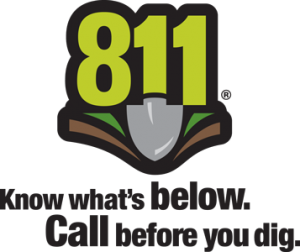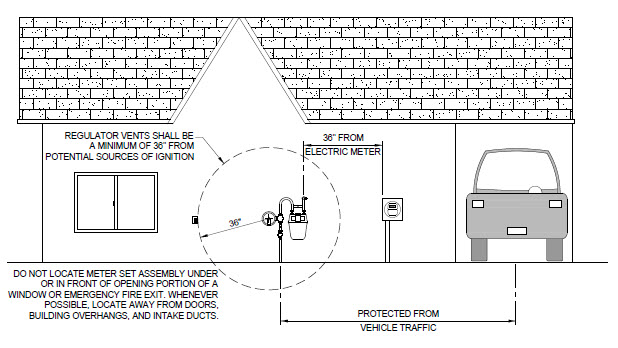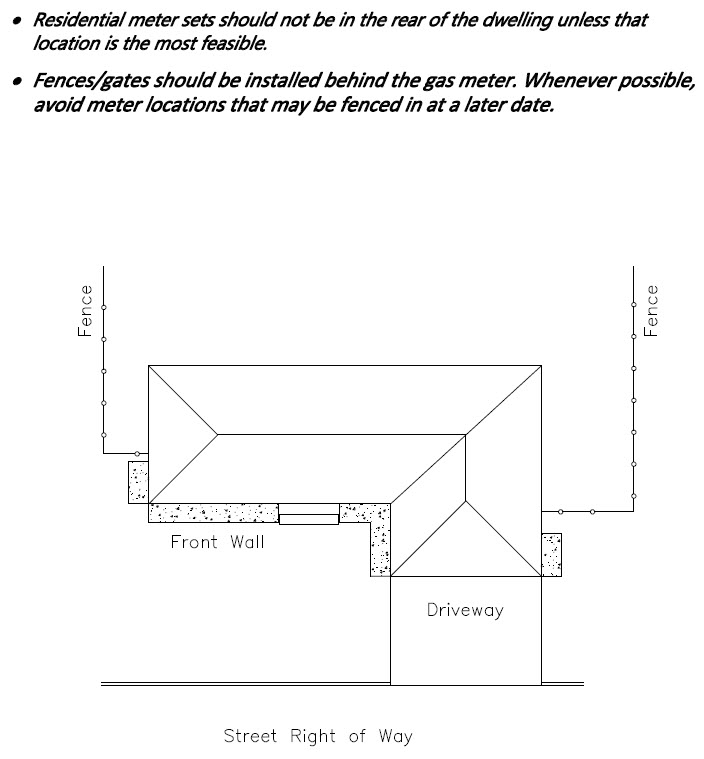New Natural Gas Service
Natural gas is the best choice for space and water heating in new construction. Converting to natural gas for heat or adding a new gas fireplace may be more affordable than you think, especially if you already have natural gas in your neighborhood. Please review this general overview of the requirements for new gas service. Each construction project differs, so contact Montana-Dakota to discuss your project. We’ll be happy to help.
Getting Started
1. Contact Montana-Dakota to confirm natural gas service at your location.
2. Be ready to provide the following information:
• 911 address of building site.
• Mailing address.
• Capacity of equipment or total connected load (in BTUs) to be served by natural gas.
• Knowledge of customer-owned underground facilities.
3. Obtain a building or mechanical permit from the city or county building department.
When you have completed these steps, schedule a site visit with one of our representatives. We schedule two to 10 weeks in advance, depending on how busy the construction season is, so call early.
Prepare For Service
Your lot must be at final grade and the foundation backfilled and compacted at the meter location. Should an aid to construction be required, it must be paid to Montana-Dakota before we install your service.
The “Gas Meter Location” diagram located below illustrates meter location and clearances. Be sure the meter and associated equipment are protected from falling ice, snow, water, etc. The “Optimal Building Entry” area is identified as the green shaded area. The gas line should stub out of your building in the green shaded area.
Pipe stubbed from a mobile home must be at least ¾-inch in diameter. A kink-proof mobile home connector from the piping to the gas meter must be provided.
On Site
Montana-Dakota reserves the right to specify the meter location. All meters must be outside. The gas meter should be located on the side of the building nearest the local electric transformer. New construction gas meter locations should be within 10 feet of the electric meter to allow for a shared service trench, reducing the costs to the builder/homeowner. Montana-Dakota requires a 4-foot clear zone in front of the gas meter.
Know the following information in advance to avoid service delays or having to do an expensive relocation someday:
• Septic system location • Building plans
• Cooking exhaust location • Electric routes
• Future landscaping • Phone routes
• Foundation vent location • Deck conflicts
• Furnace exhaust location • Roof drainage
• Bathroom exhaust location • Window/Door
• Dryer exhaust location • Cable routes
Hook-Up
Customers must pressure test all customer-owned natural gas piping systems per local jurisdictional code. The system can be pressure tested through the ¼-inch tap on the meter bar. The meter bar and riser must be level and plumb after customer piping is connected. If Montana-Dakota’s facilities are under stress before the meter is set, a service call charge may be assessed and the meter will NOT be set. Your mechanical contractor will have to re-pipe the connection and an additional call to request the meter will be required. At the time we witness the pressure test, or receive notification indicating it was tested, our representative will set the gas meter.
You are responsible for inspecting and maintaining piping downstream of the meter, including buried lines that may be subject to corrosion and leaks. NO structures or buildings can be located over Montana-Dakota owned natural gas lines. You may contact Montana-Dakota for advice or assistance at any time.

If you are excavating, call the universal 811 number to have utility lines located and marked at least two working days before you begin. It’s free and it’s the law. Calling before you dig can save lives and prevent accidents.
Contact Us
Contact Montana-Dakota at
1-800-MDU-FAST
(1-800-638-3278)
www.montana-dakota.com
Gas Meter Location



